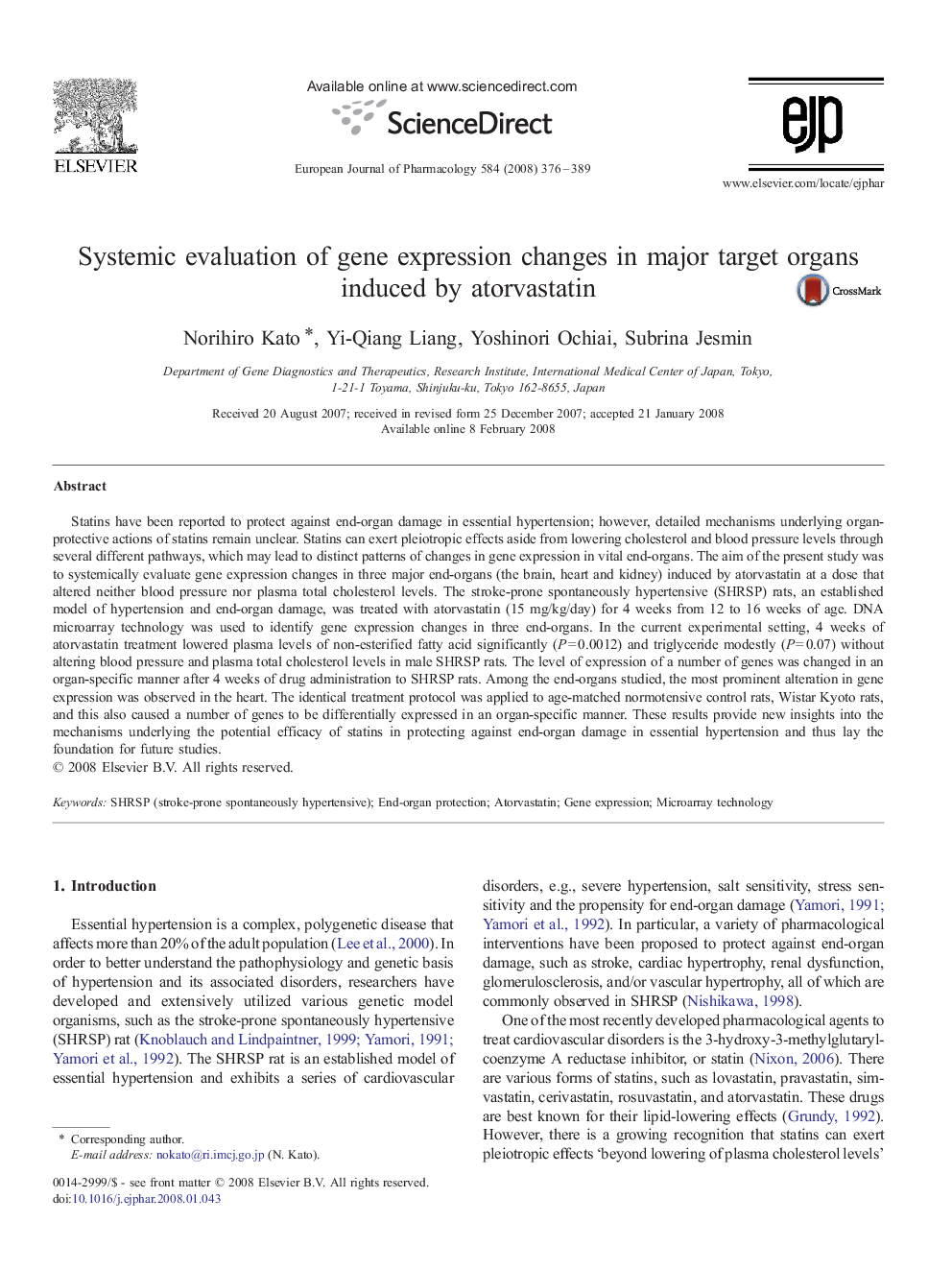| Article ID | Journal | Published Year | Pages | File Type |
|---|---|---|---|---|
| 2535392 | European Journal of Pharmacology | 2008 | 14 Pages |
Statins have been reported to protect against end-organ damage in essential hypertension; however, detailed mechanisms underlying organ-protective actions of statins remain unclear. Statins can exert pleiotropic effects aside from lowering cholesterol and blood pressure levels through several different pathways, which may lead to distinct patterns of changes in gene expression in vital end-organs. The aim of the present study was to systemically evaluate gene expression changes in three major end-organs (the brain, heart and kidney) induced by atorvastatin at a dose that altered neither blood pressure nor plasma total cholesterol levels. The stroke-prone spontaneously hypertensive (SHRSP) rats, an established model of hypertension and end-organ damage, was treated with atorvastatin (15 mg/kg/day) for 4 weeks from 12 to 16 weeks of age. DNA microarray technology was used to identify gene expression changes in three end-organs. In the current experimental setting, 4 weeks of atorvastatin treatment lowered plasma levels of non-esterified fatty acid significantly (P = 0.0012) and triglyceride modestly (P = 0.07) without altering blood pressure and plasma total cholesterol levels in male SHRSP rats. The level of expression of a number of genes was changed in an organ-specific manner after 4 weeks of drug administration to SHRSP rats. Among the end-organs studied, the most prominent alteration in gene expression was observed in the heart. The identical treatment protocol was applied to age-matched normotensive control rats, Wistar Kyoto rats, and this also caused a number of genes to be differentially expressed in an organ-specific manner. These results provide new insights into the mechanisms underlying the potential efficacy of statins in protecting against end-organ damage in essential hypertension and thus lay the foundation for future studies.
